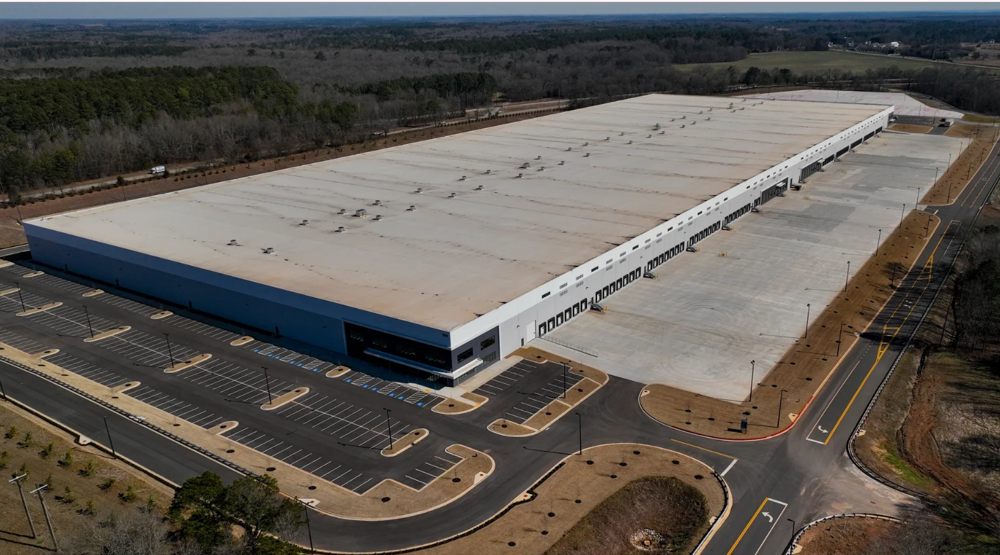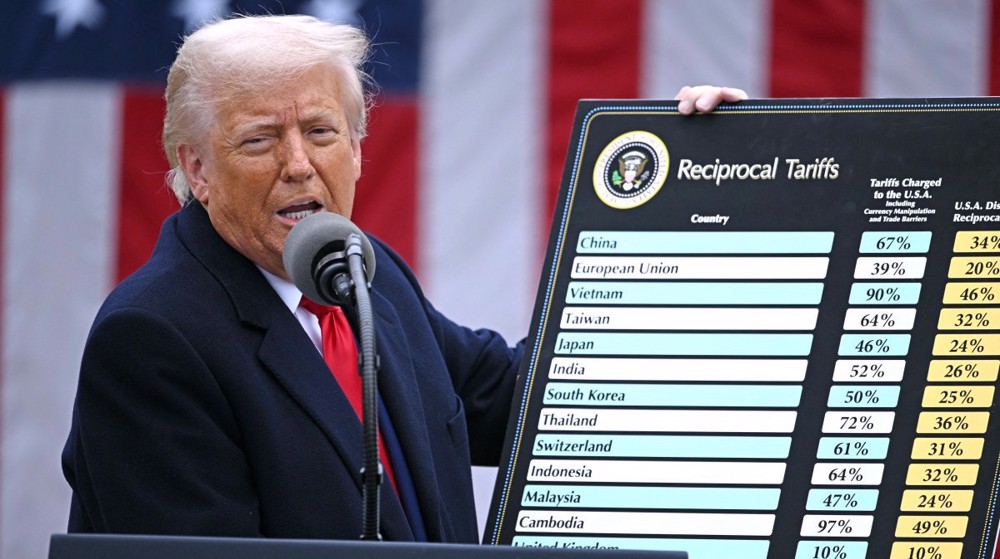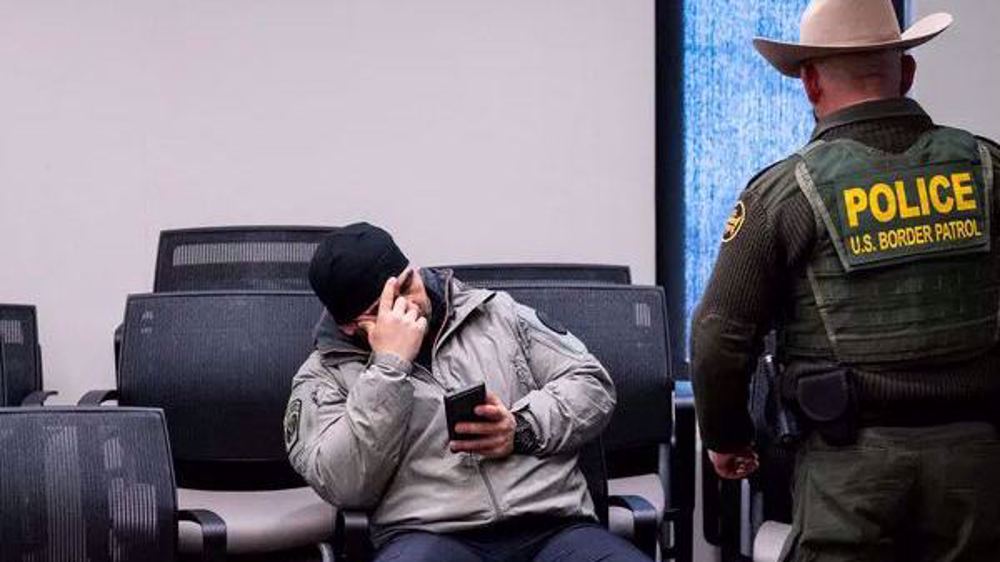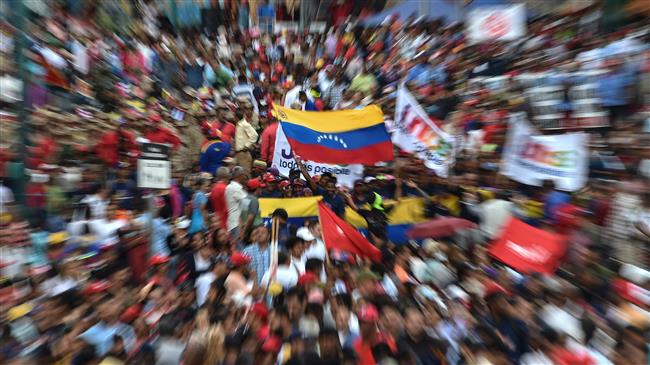Venezuelan envoy to UN says US preparing for ‘military invasion’ of Venezuela
Venezuela’s envoy to the United Nations says the United States is preparing for a “military invasion” of his country, amid Washington’s recent move to impose sanctions on the state-owned oil firm PDVSA in its harshest financial challenge yet to President Nicolas Maduro.
Jorge Valero, Venezuela’s permanent ambassador to the UN, made the comment at a the UN-sponsored Conference on Disarmament in New York on Tuesday, questioning whether US President Donald Trump’s administration had the moral authority to “impose a diktat” on Caracas.
Valero’s remarks were in direct response to the US deputy ambassador to the UN, Cynthia Plath, who said minutes earlier that Washington was “committed to holding accountable those responsible for Venezuela’s tragic decline.”

US Republican Senator Lindsey Graham on Sunday revealed in an interview with the HBO that Trump had asked about his opinion about “using military force” in Venezuela against Maduro.
The South Carolina Senator added that he had urged Trump to be cautious since the military intervention in the South American country “could be problematic.”
There have been growing tensions in the wake of a move by Washington to lead the charge to recognize opposition figure Juan Guaido as Venezuela’s president over the incumbent Maduro and calling on other countries to follow suit.
Thirty five-year-old Guaido, an unknown figure until recently, proclaimed himself “interim president” of Venezuela on January 23. Minutes after the bizarre move, Trump recognized him as the leader of the country.
Britain, Germany, France, and Spain have already given an eight-day ultimatum to Caracas that they would also recognize Guaido as president if Maduro failed to call a new election within the given period. On Saturday, Venezuelan Foreign Minister Jorge Arreaza lambasted that ultimatum as “childlike,” the same day US Secretary of State Mike Pompeo urged the world to support Guaido and reject “Maduro and his mayhem.”
Other countries, including Russia, Turkey, China, and Iran, have expressed support for the elected government in Venezuela and condemned outside interference in the country.
Venezuela’s incumbent president retains the loyalty of the armed forces, though the country’s top military envoy to Washington, Colonel Jose Luis Silva, on Saturday defected to Guaido, calling on other military officers to back the pretender, who is also recognized by Canada and other regional powers.
On Monday, Washington put further pressure on Maduro’s government when US National Security Adviser John Bolton and Treasury Secretary Steven Mnuchin jointly announced that the US had blocked all assets of PDVSA under its jurisdiction and banned deals with the firm.
Furthermore, the US State Department on Tuesday announced that it had certified the authority of Guaido to control certain assets held by the Federal Reserve Bank of New York or any other US-insured banks, describing his self-proclaimed presidency as the “legitimate government.”
“This certification will help Venezuela’s legitimate government safeguard those assets for the benefit of the Venezuelan people,” State Department spokesman Robert Palladino said in a statement, adding that the certification had been given on Friday.
In another development on Tuesday, Venezuela’s Attorney General Tarek Saab said he had asked the Supreme Court to launch a preliminary investigation against Guaido, and to freeze the opposition leader’s accounts.
Guaido is a legislator who also heads the National Assembly. As a lawmaker, he has immunity from criminal investigation, which can only be lifted by a high court.
Separately in the day, Guaido said he did not underestimate the threat of imprisonment, adding that “it is nothing new.”
Maduro has already slammed Trump for seeking to orchestrate a “coup” against his government by supporting the self-declared leader. Russia, too, has accused Washington of engineering a coup in Venezuela.
The US has a long record of sponsoring “regime change” campaigns in Venezuela and other countries. In 2002, the late Venezuelan President Hugo Chavez was ousted for two days in a US-backed coup that was ultimately defeated.
Shortly after Trump’s recognition of Guaido as Venezuela’s “acting president,” Maduro said he was severing diplomatic and political ties with Washington, ordering the closure of Venezuela’s embassy and consulates in the US. He also gave officials in the US diplomatic mission in Caracas 72 hours to leave the country.
During the past few weeks, pro- and anti-government rallies have been held in the Venezuelan capital.
The UN Human Rights Agency says at least 40 people were killed in Venezuela during the past week, adding that more than 850 people have been arrested in the Latin American country, including 696 on January 23, which is the highest number recorded for a single day in 20 years.
Oil-rich Venezuela is mired in economic turmoil, with hyperinflation, power cuts and shortages of basic items. It is also one of the countries with the world’s highest crime rate.
Maduro was sworn in for a second term on January 10, after a vote marred by an opposition boycott and claims of vote-rigging.
Huckabee mocks Arab League's condemnation of his biblical territorial remarks
VIDEO | Trump tariff setback
VIDEO | Press TV's news headlines
VIDEO | Iran will not 'capitulate' since it has military surprises for US
China overtakes US as Germany’s top trading partner
VIDEO | Displaced Gazans struggle to find clean water amid Ramadan
VIDEO | Pakistan strikes militant camps along Afghan border after suicide bombings
Iran FM: Chance still exists for win-win solution to nuclear issue















 This makes it easy to access the Press TV website
This makes it easy to access the Press TV website